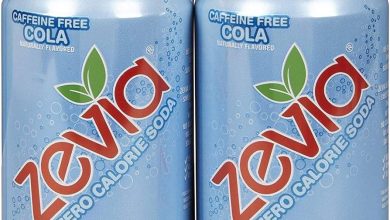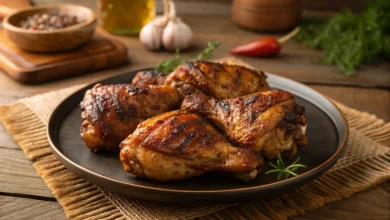Broadbeans (Fava Beans) – Cooked, Blanched with No Salt
Broadbeans, also known as fava beans, are a highly nutritious legume commonly used in a variety of dishes. These mature seeds, once cooked and blanched without added salt, provide a well-rounded source of essential nutrients and health benefits. Here’s a breakdown of the key nutritional components of cooked, blanched fava beans:
Nutritional Information (per 100g):
| Nutrient | Amount |
|---|---|
| Energy | 110.0 kcal |
| Protein | 7.6 g |
| Total Fat | 0.4 g |
| Saturated Fat | 0.066 g |
| Carbohydrates | 19.65 g |
| Fiber | 5.4 g |
| Sugars | 1.82 g |
| Calcium | 36.0 mg |
| Iron | 1.5 mg |
| Magnesium | 43.0 mg |
| Phosphorus | 125.0 mg |
| Potassium | 268.0 mg |
| Sodium | 5.0 mg |
| Zinc | 1.01 mg |
| Copper | 0.259 mcg |
| Manganese | 0.421 mg |
| Selenium | 2.6 mcg |
| Vitamin C | 0.3 mg |
| Thiamine (Vitamin B1) | 0.097 mg |
| Riboflavin (Vitamin B2) | 0.089 mg |
| Niacin (Vitamin B3) | 0.711 mg |
| Vitamin B6 | 0.072 mg |
| Folate | 104.0 mcg |
| Vitamin B12 | 0.0 mcg |
| Vitamin A | 1.0 mcg |
| Vitamin E | 0.02 mg |
| Vitamin D2 | 0.0 mcg |
Health Benefits of Broadbeans:
Broadbeans are an excellent source of plant-based protein, making them a valuable addition to vegetarian and vegan diets. They are rich in dietary fiber, which supports digestive health and helps regulate blood sugar levels. Additionally, the beans are packed with important minerals such as iron, magnesium, and potassium, which play vital roles in supporting bone health, muscle function, and hydration.
Fava beans are also a good source of B-vitamins, including folate, which is essential for cell growth and the formation of red blood cells. Their low sodium content makes them a heart-healthy choice for those monitoring their salt intake.
Allergen Information:
Fava beans are generally safe for most individuals; however, they may cause allergic reactions in some people, particularly those with a sensitivity to legumes. It’s important to note that fava beans contain compounds called vicine and convicine, which may cause a reaction in individuals with G6PD deficiency, a rare genetic condition.
Dietary Preferences:
- Vegetarian: Yes
- Vegan: Yes
- Gluten-Free: Yes
- Low in Saturated Fat: Yes
- Low Sodium: Yes
Usage Tips:
Fava beans are versatile and can be added to a wide range of dishes, from salads to stews and soups. They can be blended into dips, such as hummus, or used as a protein-rich filling in wraps and sandwiches. Cooking fava beans with herbs and spices enhances their natural flavor, making them an excellent addition to Mediterranean or Middle Eastern cuisines.
Conclusion:
Fava beans are a highly nutritious legume that can contribute to a well-balanced diet. Their rich protein content, fiber, vitamins, and minerals make them a beneficial food choice for promoting overall health. Whether you’re seeking a plant-based protein source or looking to add variety to your meals, cooked, blanched fava beans are an excellent and tasty option.










